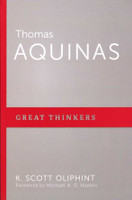
Oliphint, K. Scott
Anyone who does theology in the twenty-first century should have some understanding of the German philosopher G. W. F. Hegel, whose writings deeply influenced European thought on both the left and right. In this introduction to Hegel, Shao Kai (“Alex”) Tseng examines the events in Hegel’s life that shaped his work, shows the theological significance of his philosophy, and surveys the use of Hegelian methods in modern theology. Finally, he provides a fresh and insightful Reformed critique, underscoring the importance of an objective commitment to Scripture and to Christ.
Author
Shao Kai Tseng (MDiv, Regent College; ThM, Princeton Theological Seminary; MSt, DPhil, University of Oxford) is research professor in the philosophy department at Zhejiang University in Hangzhou, China. He is the author of Karl Barth’s Infralapsarian Theology as well as a number of articles published internationally.
Endorsements
“William James amusingly noted that one side effect of nitrous oxide inhalation is increased understanding of Hegel’s philosophy. As fun as that sounds, I have a better suggestion: read this splendid book by Alex Tseng before diving into the German idealist’s profoundly difficult writings. I learned many new and useful things from Tseng’s well-informed exposition and analysis. Reformed readers will especially appreciate the discussion of how Bavinck, Vos, and Van Til . . . [exposed] the flawed foundations of his system while co-opting his common-grace insights to demonstrate the virtues of a Reformed Christian worldview.”
—James N. Anderson, Professor of Theology and Philosophy, Reformed Theological Seminary, Charlotte
“G. W. F. Hegel had an incalculable influence on the modern world. Whether faithfully or not, his philosophy was adopted by major thinkers as well as political activists throughout the nineteenth and twentieth centuries. His dictum that the rational alone is real was embodied in a progressive, organic view of history that culminates in an absolute state. China, Nazi Germany, the Soviet Union, and even parts of American liberalism stand on this pillar. Shao Kai Tseng’s deeply learned account presents Hegel as an absolute realist whose views have found some echoes in Bavinck, Vos, Van Til, and even Schaeffer, and yet who is ultimately one of the great foes of biblical Christian faith. This series just keeps getting better and better.”
—William Edgar, Professor of Apologetics, Westminster Theological Seminary
“Tseng’s introduction to Hegel achieves a remarkable balance of clarity, depth, and intellectual charity. He manages to present the essential features of Hegel’s thought in accessible and engaging terms (no small feat!), while resisting the temptation to caricature. He combines these virtues with a rich grasp of theological history to help us appreciate how one of modern philosophy’s most important thinkers has been, and continues to be, both a challenge and an inspiration to the Reformed Christian tradition. This book represents the best of the genre, and will be of interest to both student and teacher.”
—Ryan Kemp, Assistant Professor of Philosophy, Wheaton College
“Alex Tseng’s book not only sets out a clear and reliable introduction to Hegel’s thought but also makes clear why this is important to Christians—not least those who are inclined to view it with suspicion.”
—George Pattison, 1640 Professor of Divinity, University of Glasgow; Fellow, Max Weber Centre for Advanced Research in Cultural and Social Studies